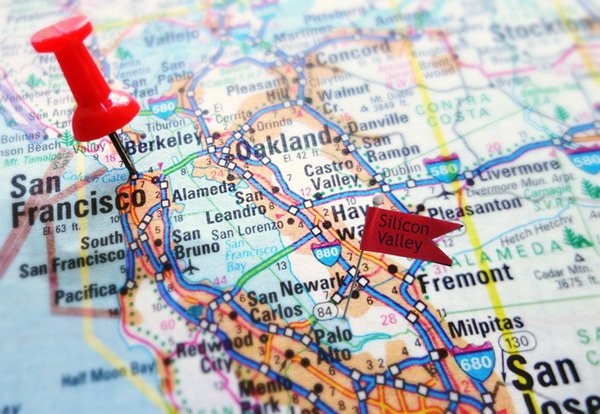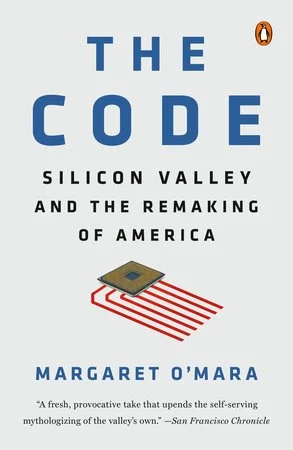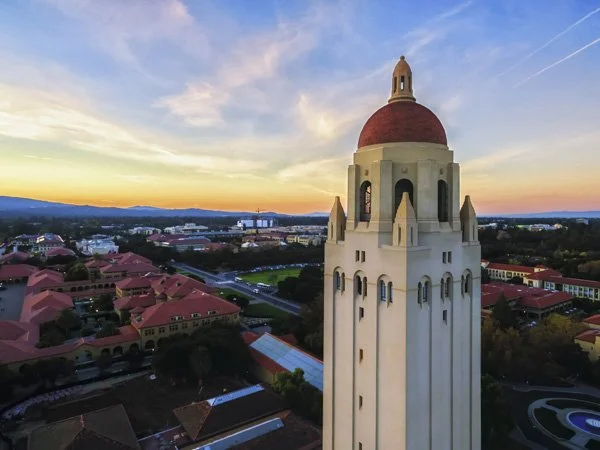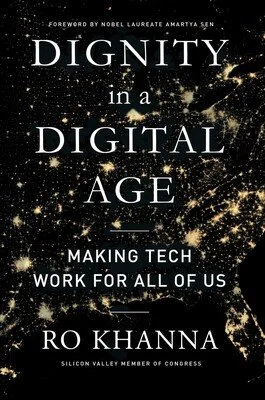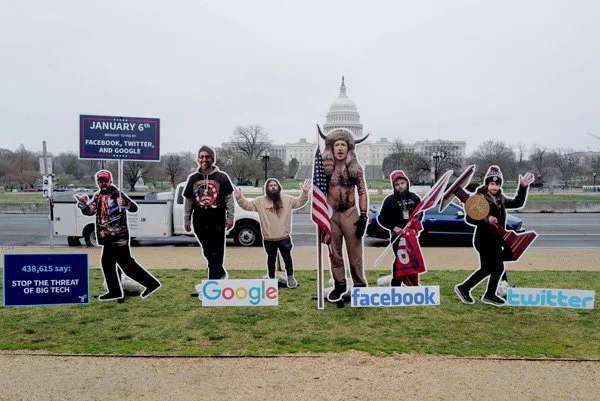Titans of Tech
Silicon Valley’s cozy relationship with Washington has been good for business — and bad for the people.
Read
During the Cold War, U.S. taxpayers funded the huge investments that gave Big Tech its jump-start. And so Silicon Valley was born amid a peculiar blend of hypermasculine, militaristic libertarianism and 1960s countercultural values. Now the titans of the tech industry seem enthralled with visions of a post-democratic society driven by algorithms more than actual human connection. Historian Margaret O’Mara joins Will and Siva to ponder what it will take to tame the beast Americans created half a century ago.
O’Mara argues that the tech revolution was fueled as much by top-down social forces as it was by a New Age ideology of personal fulfillment. Children of the ’60s who were exposed to computers at Stanford University may have seen themselves as exploiting the tools of the establishment as they built a new commercial industry; but the establishment was also exploiting them, as America grew its high-tech military supremacy. In many ways, the present-day dominance of the biggest players in Big Tech resonates with all those early ideological roots of Silicon Valley.
In July 2020, Congress dragged the chief executives of Amazon, Apple, Facebook and Google before the cameras to answer pointed questions about their anticompetitive business practices, privacy protocols and lax policies on disinformation. So, are the days of Silicon Valley’s cozy relationship with Washington coming to an end? Maybe — maybe not.
Meet
Margaret O’Mara is a historian and the Howard and Frances Keller Endowed Professor at the University of Washington. She worked in policymaking before moving to academia. Her research focuses on the connections between the high-tech industry and U.S. politics. O’Mara’s popular work appears frequently in the New York Times and Wired. Her most recent book is The Code: Silicon Valley and the Remaking of America (Penguin Press, 2019). Earlier, she authored Cities of Knowledge: Cold War Science and the Search for the Next Silicon Valley (Princeton University Press, 2005) and a book about historic presidential campaigns, Pivotal Tuesdays: Four Elections That Shaped the Twentieth Century (University of Pennsylvania Press, 2015). Follow O’Mara on Twitter @margaretomara.
Building on prior work in Cities of Knowledge, The Code walks readers through the history of Silicon Valley from its inception to its status as “the engine room of the American economy.”
O’Mara offers a short version of that story in MIT Technology Review, showing how Big Tech got substantial support from the federal government as the industry was getting off the ground.
A critical piece of the puzzle in Silicon Valley’s growth was government spending on social programs, not just digital innovation, O’Mara writes. This suggests the next major tech hub will need sustained social spending to support its dreams.
Read more of O’Mara’s insights on history, technology, business and U.S. politics in The New York Times. Her op-eds include commentary on that 2020 tech hearing and a critique of the industry’s “unwavering belief in the power of technology.”
Learn
A major question in the July 2020 hearing on Capitol Hill was whether the big tech companies have too much market power. More recently lawmakers have taken aim at Apple’s fee-laden App Store.
Perhaps no member of Congress has been as vocal about tech regulation as Silicon Valley’s own Rep. Ro Khanna. His new book Dignity in a Digital Age addresses the problem of unequal access to information technology. Learn more about it in an interview Khanna gave recently to the Washington Post.
Last year Silicon Valley execs, including Twitter’s Jack Dorsey, were grilled yet again — this time on the role their platforms played in enabling the insurrection of Jan. 6, 2021. Short story: Congress didn’t get much in the way of answers.
The Security and Exchange Commission, meanwhile, imposed $100 million in fines in February on BitFi, a cryptocurrency lending company, for violating federal laws — a move that some in the crypto industry welcomed.
The Federal Reserve, meanwhile, is considering minting its own digital dollars, and has asked crypto experts for advice.
Congress may also give local papers a boost by allowing them to negotiate with Alphabet and Meta — a.k.a. Google and Facebook — over the reprinting of their news content. Political consultant Douglas Schoen argues in the Orange County Register that the tech giants unfairly profit off the hard work of local journalists.
But one expert says be careful what you wish for. Candace Clement writes in Tech Policy Press that the move to rein in the tech industry could cause new problems and create more loopholes.
Meanwhile, tech moguls like PayPal cofounder Peter Theil are throwing their weight around in dollar bills. An antigovernment billionaire, Theil has donated heavily to super PACs supporting Trump loyalists who traffic in conspiracy theories.
Heard on the show
We used some choice audio of the big four tech CEOs answering lawmakers’ questions by video conference in July 2020. Watch the entire five-hour marathon via C-Span.



